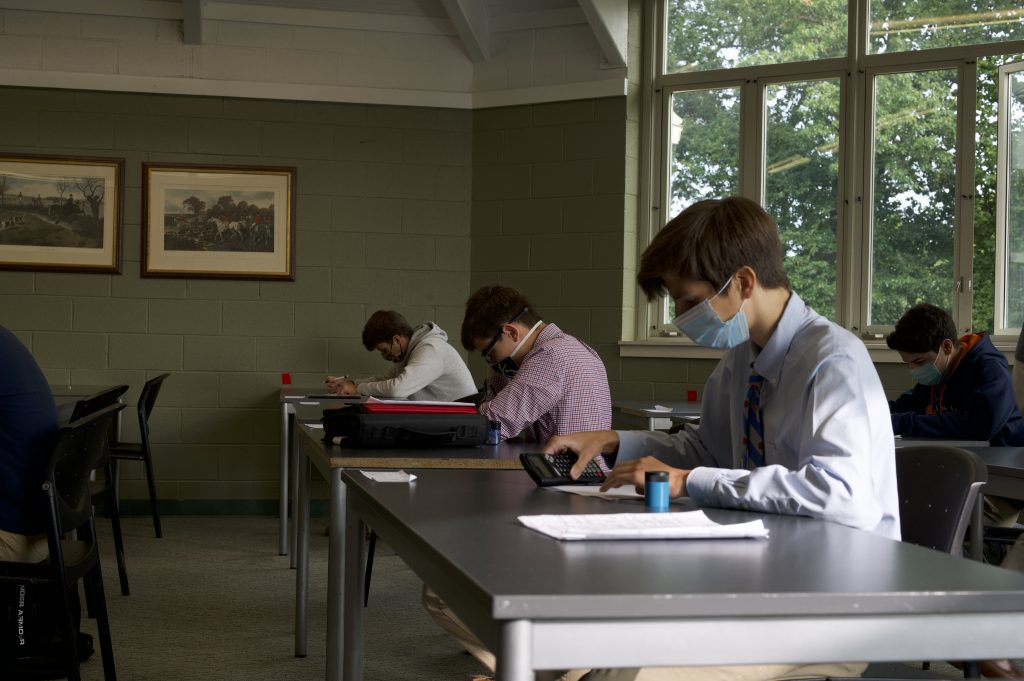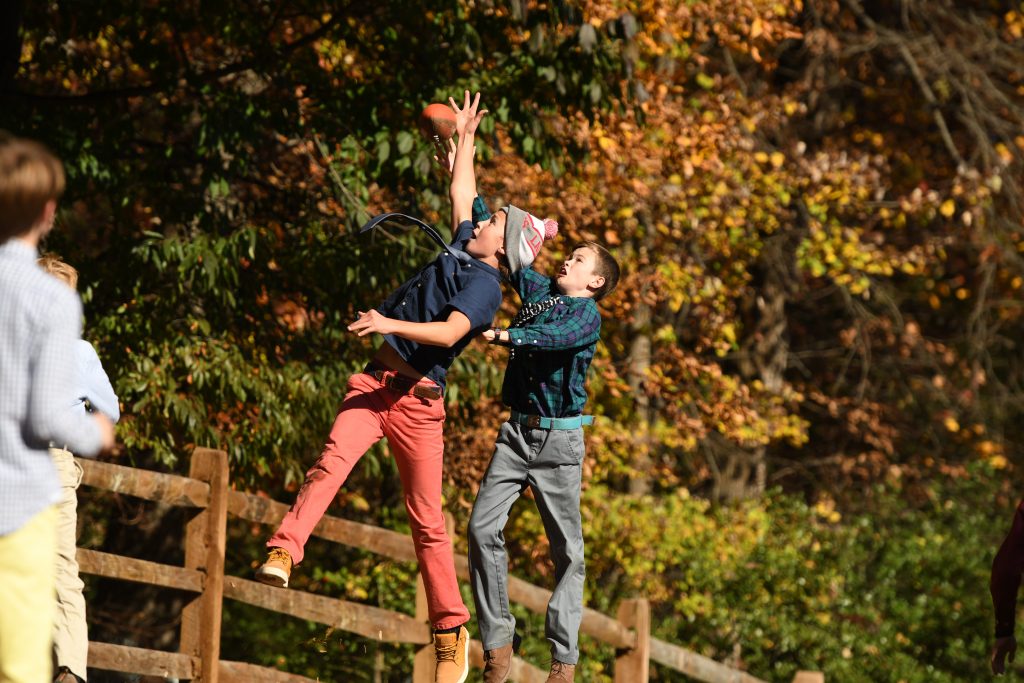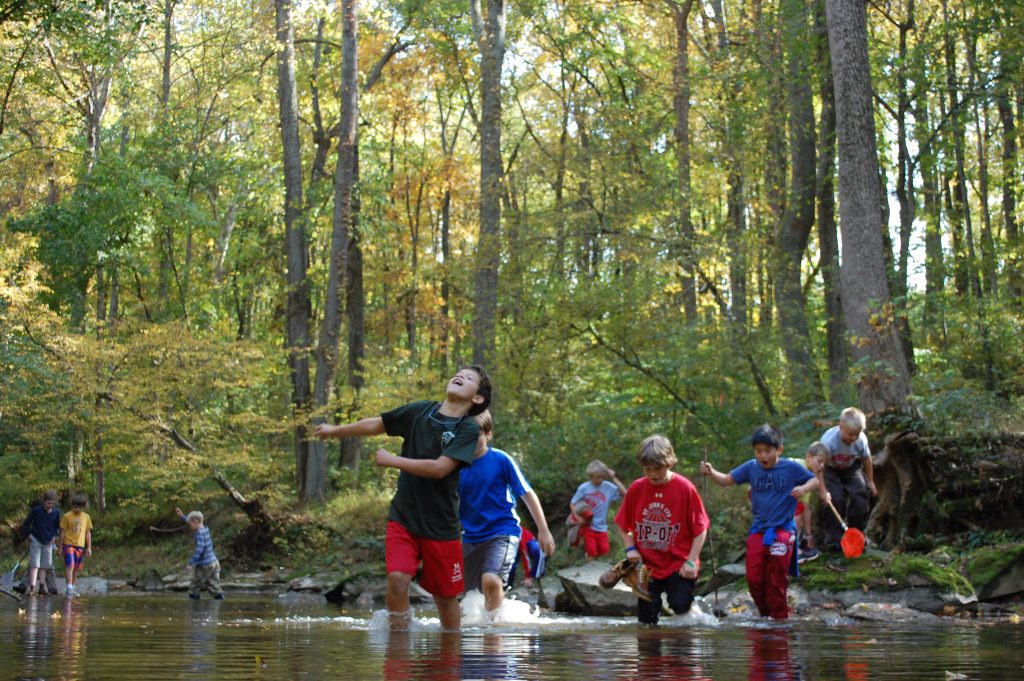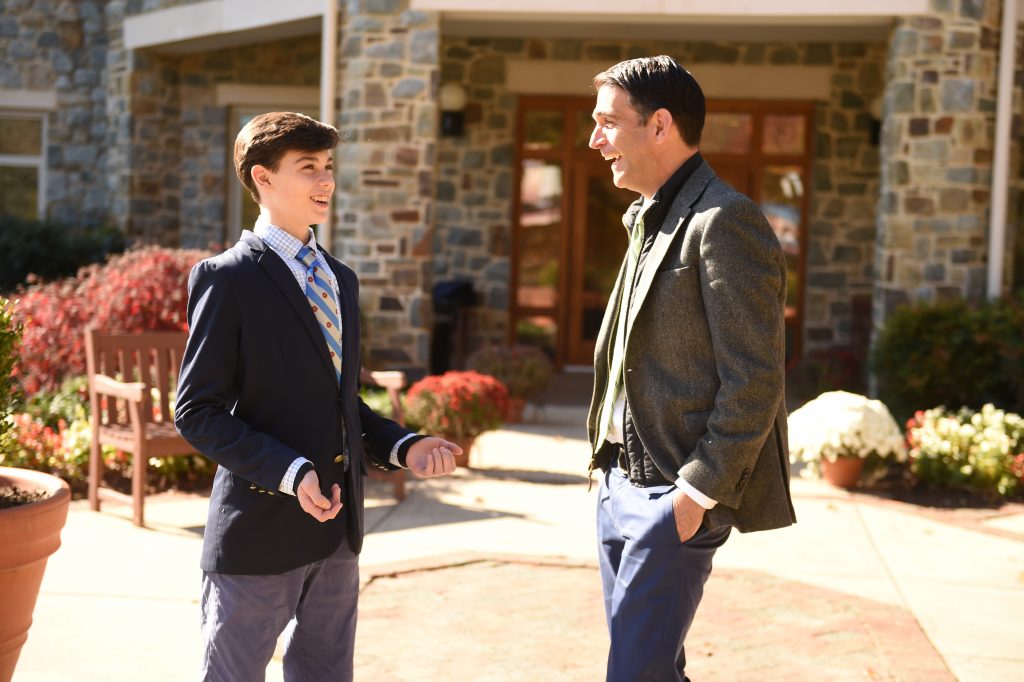As a school, we employ technology as a means to the end of educating the human person. At this time in history, in a special way, we take advantage of the means provided to supplement the limited on-campus offerings via articles, lectures, and other recorded resources. Below are some highlights from The Forum to help you get to know both the philosophy and practice of education at The Heights.

The Cost of Closing
No preventative comes without cost, and for a young man in the formative years of his life, these days have ceased being a brief episode, taking on an air of semi-permanence. How is this affecting our sons? Alvaro de Vicente gives an evening lecture discussing the impact on young people of what has come to be known as the “new normal.” More importantly and optimistically, Mr. de Vicente discusses the ways that we, as parents and primary educators, can accompany our boys through the turbulent waters of Covid-19, building them into the “men fully alive” we hoped and prayed they would be, both before March 2020 and after.

Why Boys Need Freedom
Freedom is a central component of a liberal arts education. Boys at The Heights run from class to class unsupervised, and enjoy much of their lunch break roaming campus, choosing their own adventures. They throw snowballs, climb trees, decide whether to attend Mass daily, and, once they are seniors, may go off campus for break and lunch, possibly for some local fishing. Our commitment to freedom stems from the school’s mission to form boys in virtue. Through an environment of authentic freedom, the boys come to see their liberty not as license, but rather as an opportunity to choose the good.

On Recess: The Benefits of Free Play
Part of freedom at The Heights is free play. This is especially true in the Lower School, where the boys enjoy three recesses daily. Recess is not just a chance to stretch their legs. To the contrary, recess is viewed as a class here. Our boys learn toughness, prudence, and how to evaluate risks. Listen in to learn more about the benefits of unstructured free play, and how you can bring this practice to your home or school… ideally both, because what we do at home affects our son’s experience at school.

Aristotle on the Student’s Job
At the root of study is devotion. As such, teachers at The Heights strive not only to instill knowledge in their students, but also (and perhaps more importantly) to ignite a love for learning. Teaching without inspiration is like leading a horse, who is not thirsty, to water: he won’t drink because at the moment the water is unimportant to him. This love grows out of the boys’ natural desire to know the world around him. In the end, the goal is for students to both see and love the created cosmos and, by extension, the Creator. Freedom is for love and, ultimately, for love of God.

Who Am I? Identity as Sons of God
At The Heights, education is essentially interpersonal. Teachers are concerned not only with the academic progress of their students, but also their personal growth. We do not shy away from the big questions, one of which is the perennial question of identity. Whether thy currently see themselves more as athletes or academics, we want our students to find their deepest identity in their divine filiation. When our boys become men who are secure in their identity as sons of God and they live accordingly, they will be “Men Fully Alive.”

The Odyssey, Mentors, and Humanitas
Nowhere is education more personal than in our mentorship program. At The Heights, every boy receives a personal mentor, with whom he meets one-on-one. As students navigate the odyssey of their education, these personal relationships are crucial. Indeed, Homer’s Odyssey–a staple in our liberal arts curriculum–offers insights to both teachers and students alike. In this podcast, Dr. Matt Mehan offers his thoughts on Homer’s Odyssey. In particular, Dr. Mehan focuses on the the first four books of the Odyssey and the arts of friendship and mentoring young men. Listen in for a concrete example of the contemporary applicability of the artes liberales.
For more articles, podcasts, and webinars from our faculty, please visit The Heights Forum. And, having learned about us online, we hope to meet you in person soon!